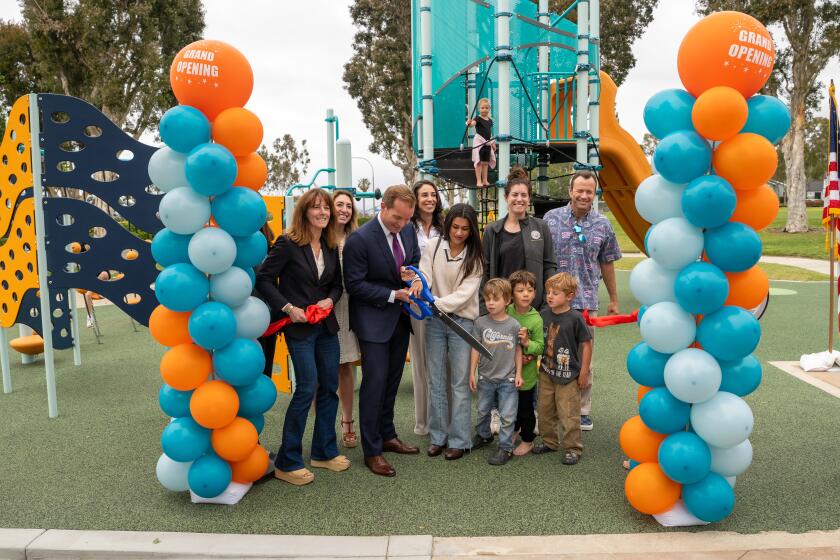Empowerment opportunity: Adult learners improve English skills at Newport Beach Public Library
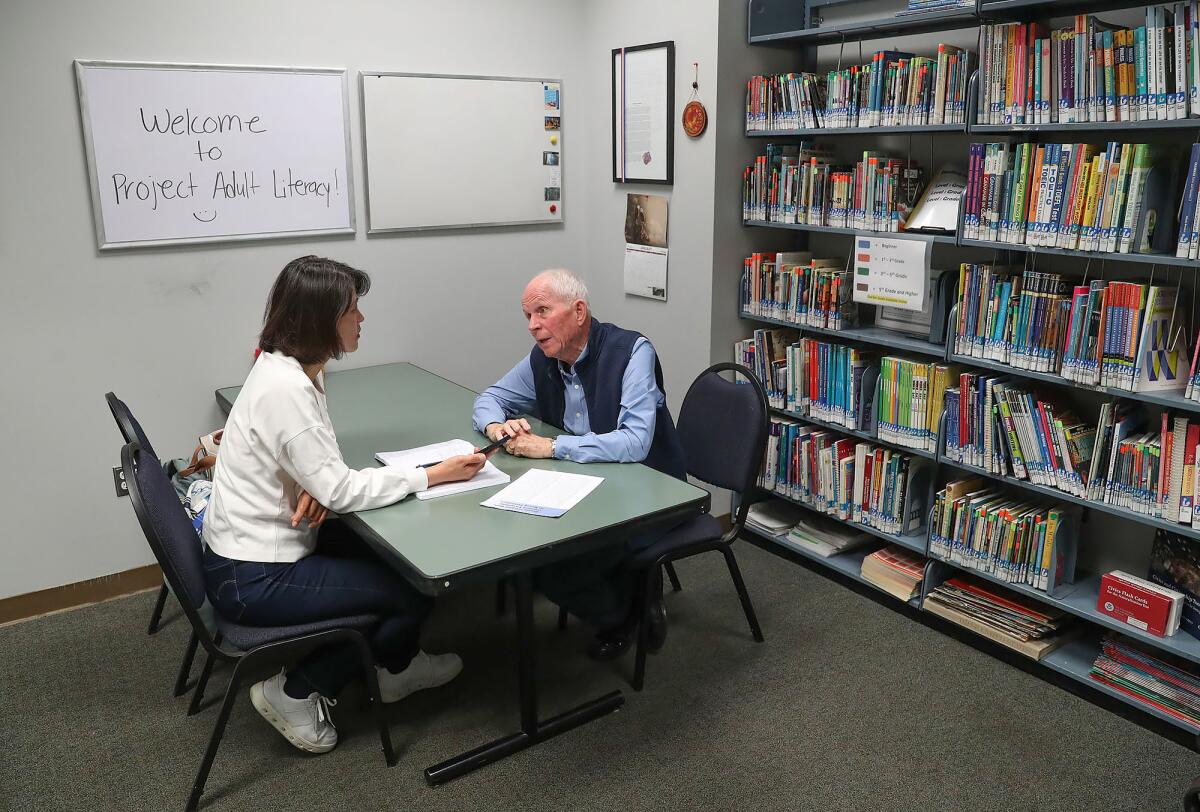
- Share via
Eun-jeung Kang has aspirations of becoming a nurse’s assistant.
Kang, an Irvine resident whose native language is Korean, said she took English classes at a local community college, but the lessons didn’t take. One of her friends suggested she look into Project Adult Literacy, a free program held at the Newport Beach Public Library that provides one-on-one tutoring and small-group classes to native English speakers with low literacy skills or those learning English as a second language.
Kang is now one of about 80 “learners” in the Newport Beach program.
Project Adult Literacy started in 1986 with Carol Hazelwood, who has stepped back from the program in the last decade. Literacy coordinator Gabriela Leman said the project began with just one student and one tutor out of the comfort of Hazelwood’s house before she later applied for a state grant.
“The rest was history,” Leman said. “The program was later incorporated into the Newport Beach Public Library, in 1988 and, since then, we’ve been serving the community.”
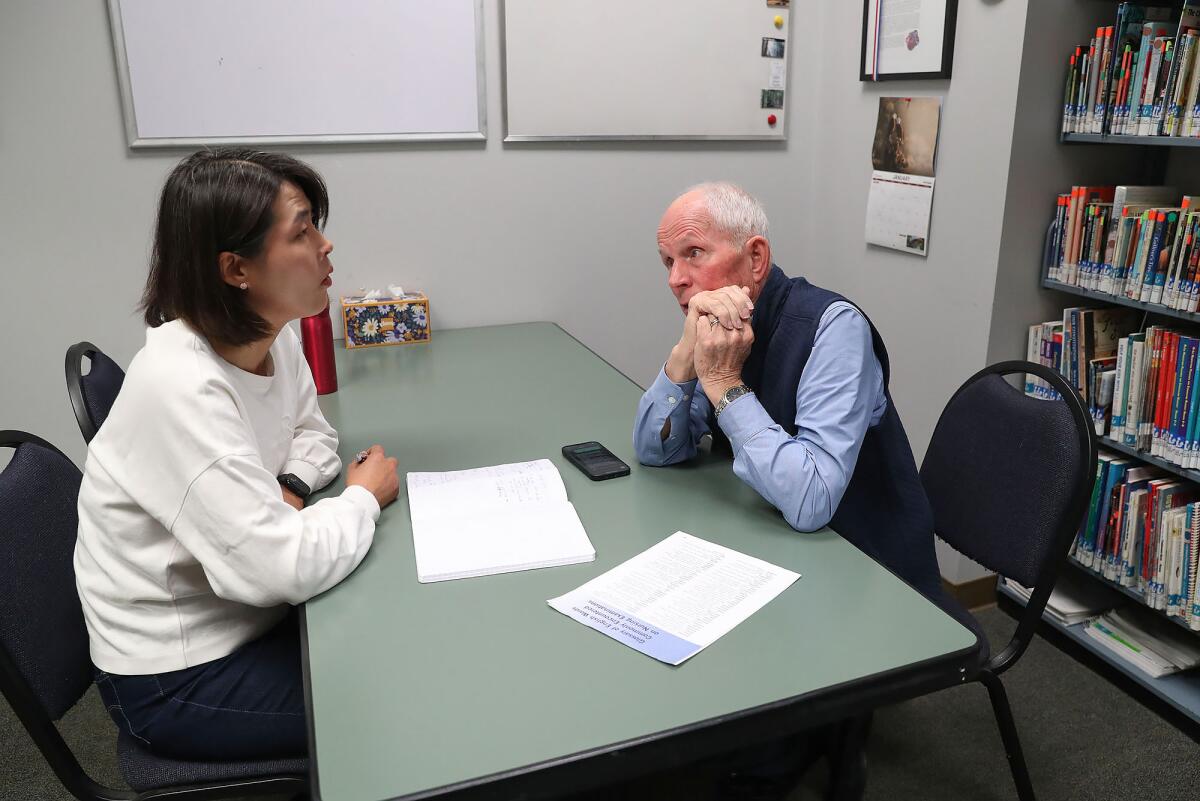
Today, almost 40 years after the program started, Leman said it boasts a student population of 76 and about 60 tutors plus 10 volunteers. Leman said most of their volunteers come from Newport Beach, but students like Kang can come from everywhere. They just need to be able to participate once a week.
“We have a whole orientation that learners are asked to come to and they need to sign learning agreements where they commit to learning and working with a tutor for one hour a week for a year. Then, at the end of the year, they’re reassessed to see how their skills have improved,” Leman said. “There’s no one-size-fits-all approach and some learners need to work with their tutors more long-term.
“We have some legacy learners that have been with the program for three to four years and some that have been with the program for 10 years because they just love the classes and are life-long learners who love meeting people that have the same goals and coming into the library to be a part of something bigger than themselves.”
For Kang, a big reason she’s stayed is because she’s so satisfied with the classes that are made available cyclically by the program and the teachers.
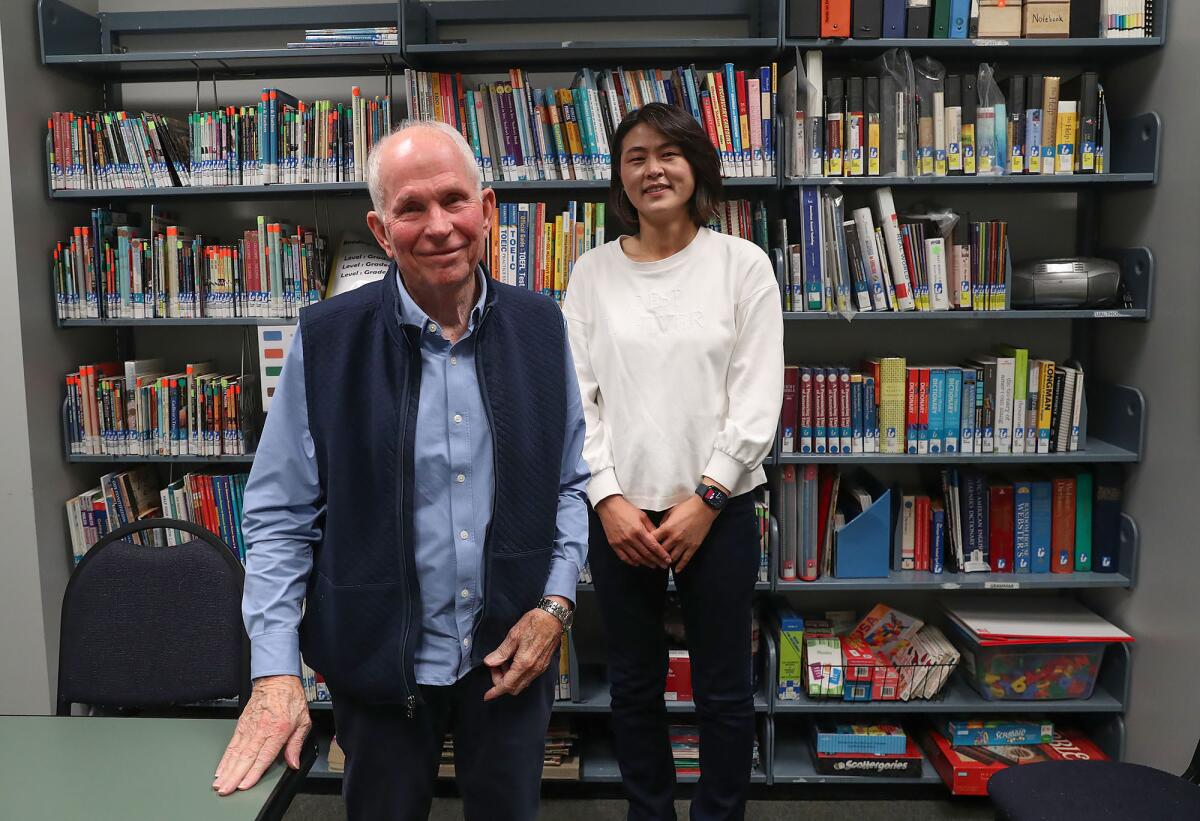
“The curriculum is very interesting. One class is on speaking and another has a book club that’s exploring California [literature],” Kang said. “I love reading books.”
She also likes the teachers. She’s been working with her own tutor, Ray Johnston, every Thursday for up to four hours a week.
Johnston said he’s been a tutor since 2018 and first came across the program when he was newly retired and looking for something to do with his free time. Before he retired, he owned a company that sold materials to contractors. Previously he managed a bookstore on the UCLA campus for a number of years. He found Project Adult Literacy after an internet search.
“It’s a community,” Johnston said. “There’s a sense of knowing other people, and there’s an opportunity to share some of the things about the language and the culture with someone else.”
He said he’s worked with about 30 learners and that Kang is his primary learner right now. During the pandemic he taught the program’s courses and worked with people online in groups of five to six. Many of his learners are women, and the books they read tend to be by successful women like Ruth Bader Ginsburg, Michelle Obama and Melinda Gates.
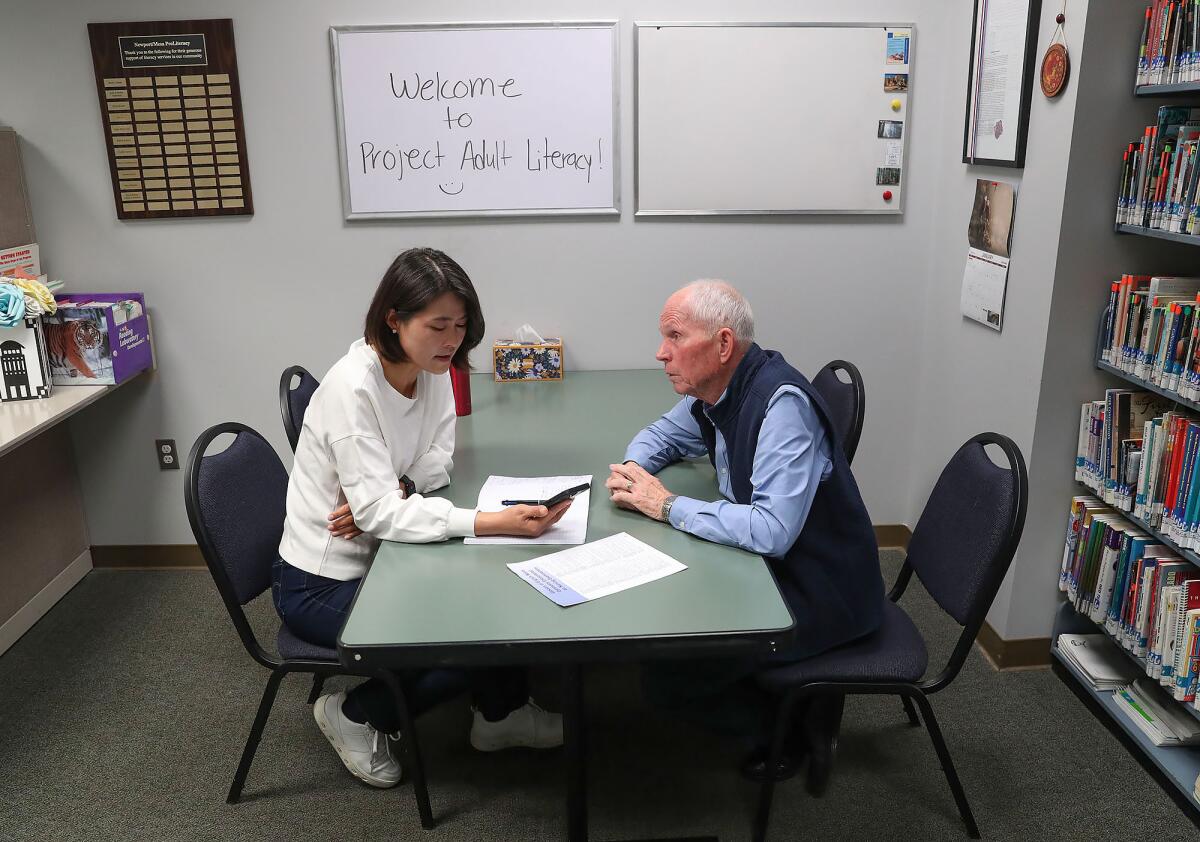
“[Project Adult Literacy] gives them some content as a social experience. They’ll meet other people in the class, and it’s a chance to practice their English with them. There’s an aspect of the culture that they learn, whether it’s in conversation, dealing with the DMV or financial things that people need to know,” he said.
He’s found feedback to be generally positive from those that he’s tutored, describing the program as a “stepping stone for them to join the larger community, getting a job or attending to a specific career objective.”
Leman said the program caters to a number of international learners who may be conversational in English but may not be able to read or write.
They receive many referrals, Leman said. There does not seem to be any stigma attached to signing up for the program, she said. Rather, potential students might have concerns about how they are perceived in daily life because of their lack of English literacy.
The program is competitive and funded not only by the state but also by the city and local businesses and sponsors.
“There is that lack of confidence. Our program does a great job of building them up where they can get jobs and have the confidence to talk to their children’s teachers about challenges … and wouldn’t have had that ability before,” she said. “Getting a job, being a citizen, going to school, communicating with educators — overall, our mission, and I’m reading our mission statement, is to empower adults to achieve greater success in their lives through literacy skill development.”
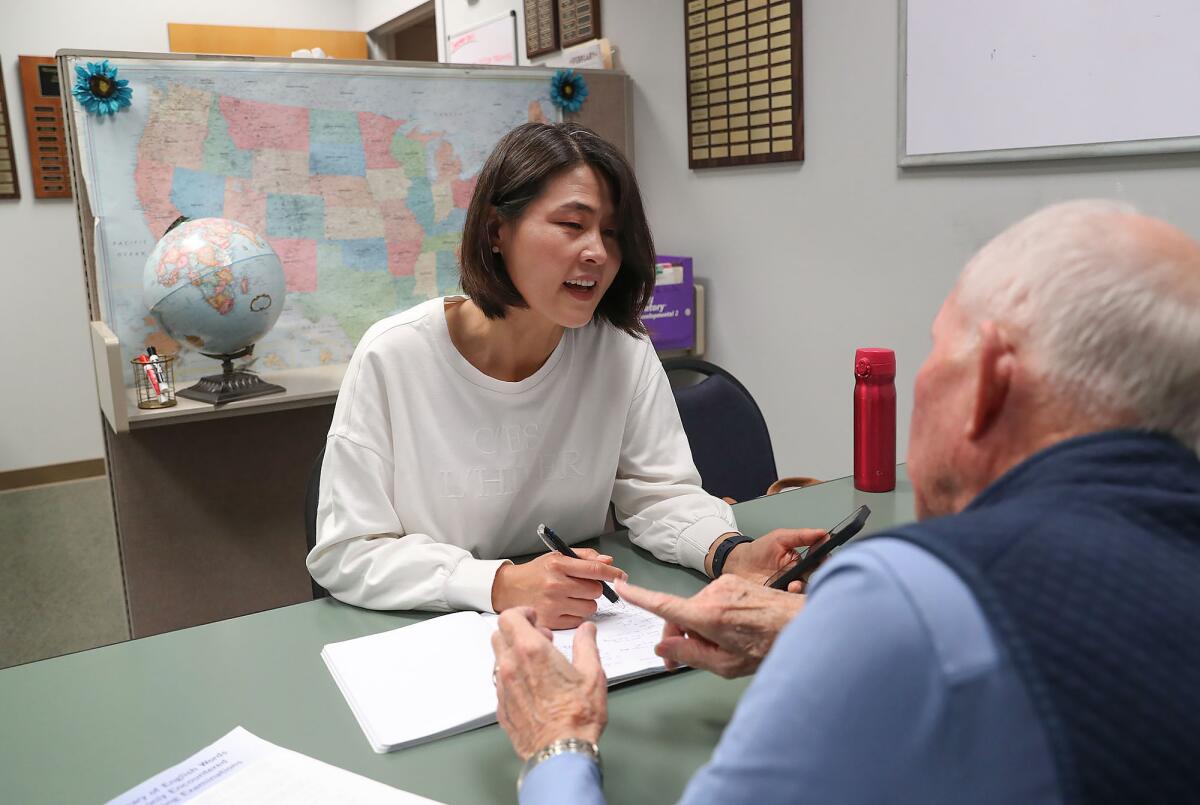
All the latest on Orange County from Orange County.
Get our free TimesOC newsletter.
You may occasionally receive promotional content from the Daily Pilot.




